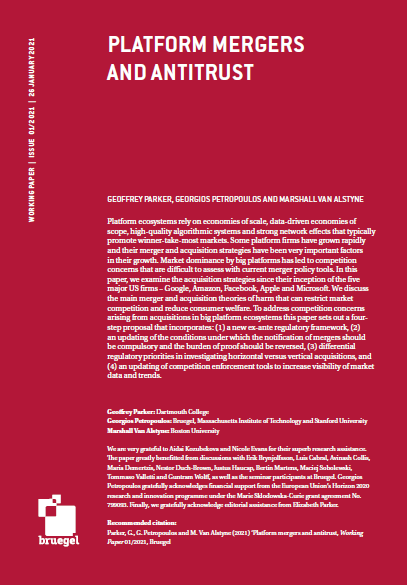Working Paper
Platform mergers and antitrust
This paper sets out a framework for addressing competition concerns arising from acquisitions in big platform ecosystems.
Platform ecosystems rely on economies of scale, data-driven economies of scope, high-quality algorithmic systems and strong network effects that typically promote winner-take-most markets. Some platform firms have grown rapidly and their merger and acquisition strategies have been very important factors in their growth. Market dominance by big platforms has led to competition concerns that are difficult to assess with current merger policy tools. In this paper, we examine the acquisition strategies since their inception of the five major US firms – Google, Amazon, Facebook, Apple and Microsoft. We discuss the main merger and acquisition theories of harm that can restrict market competition and reduce consumer welfare. To address competition concerns arising from acquisitions in big platform ecosystems this paper sets out a four-step proposal that incorporates: (1) a new ex-ante regulatory framework, (2) an updating of the conditions under which the notification of mergers should be compulsory and the burden of proof should be reversed, (3) differential regulatory priorities in investigating horizontal versus vertical acquisitions, and (4) an updating of competition enforcement tools to increase visibility of market data and trends.
Recommended citation
Parker, G., G. Petropoulos and M. Van Alstyne (2021) ‘Platform mergers and antitrust, Working Paper 01/2021, Bruegel








